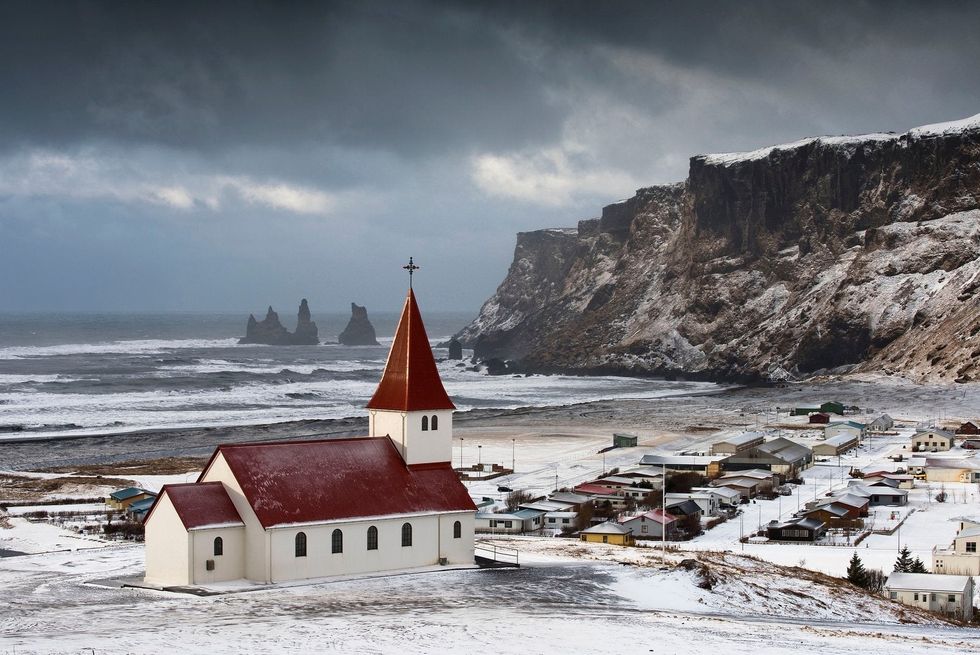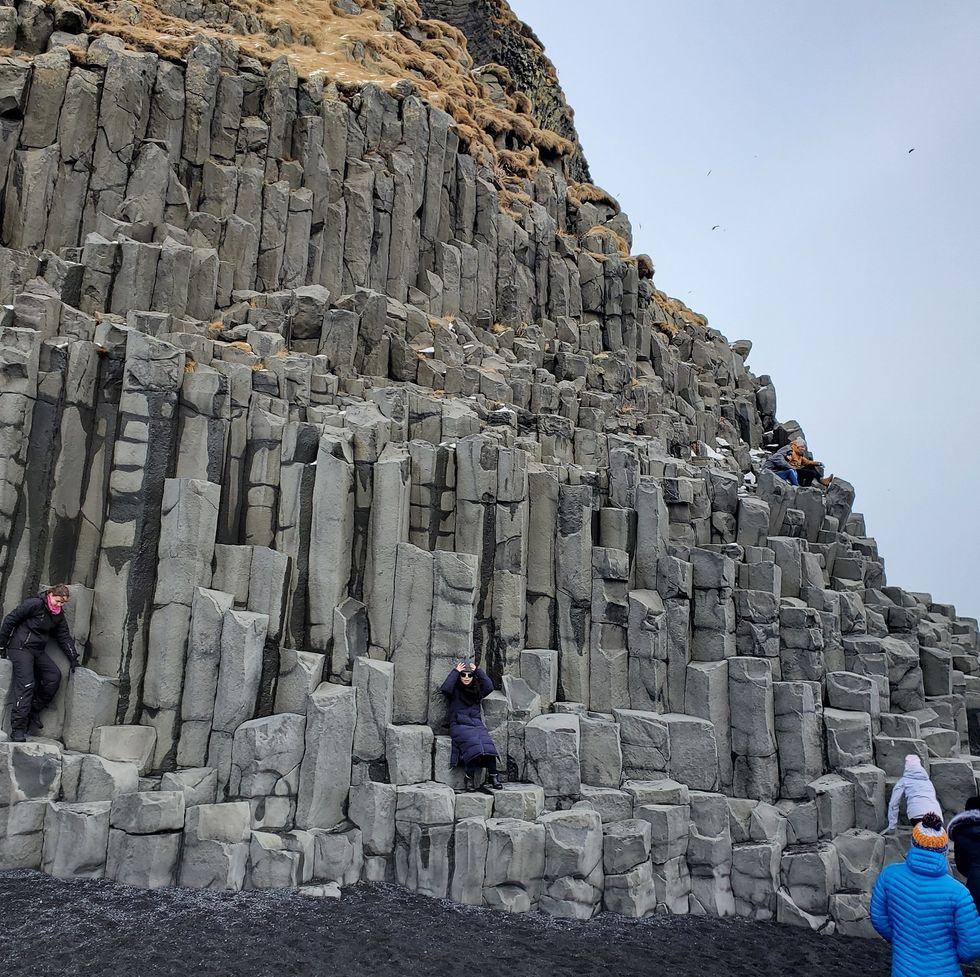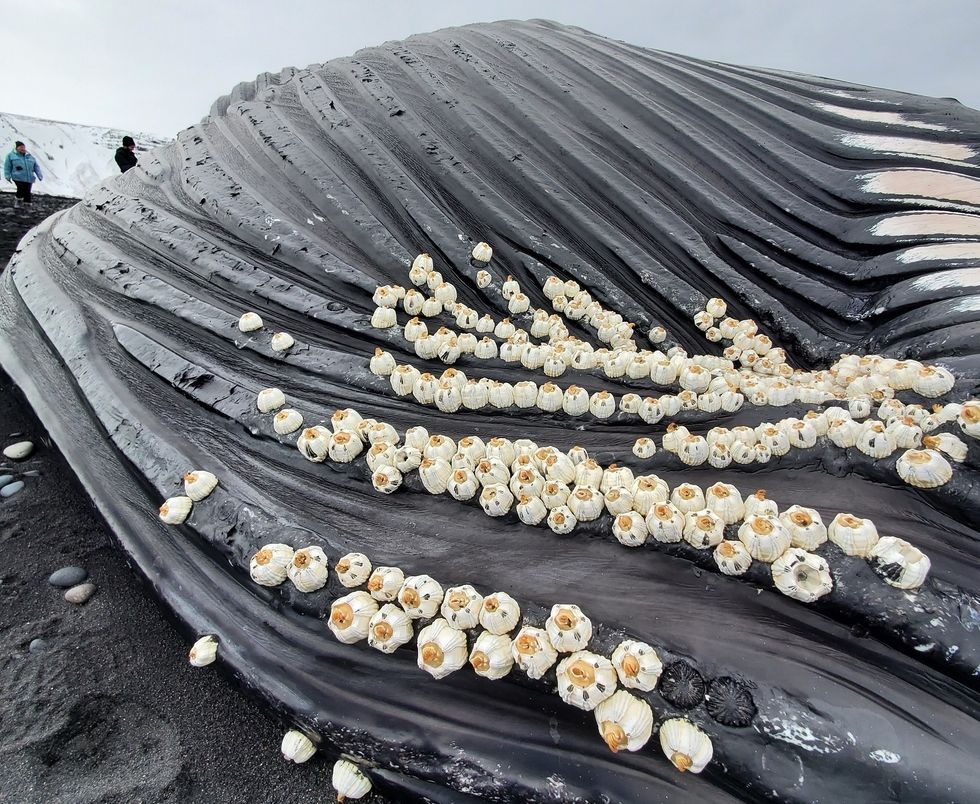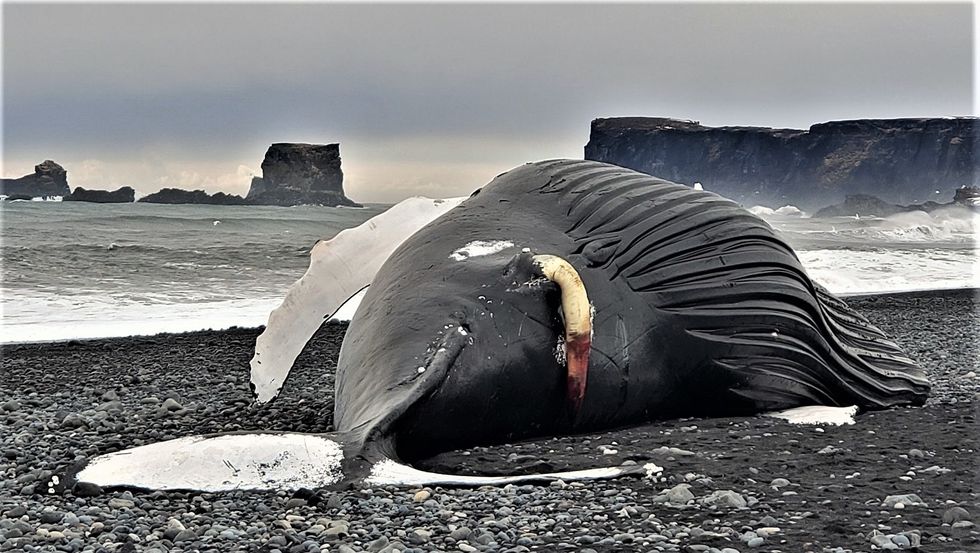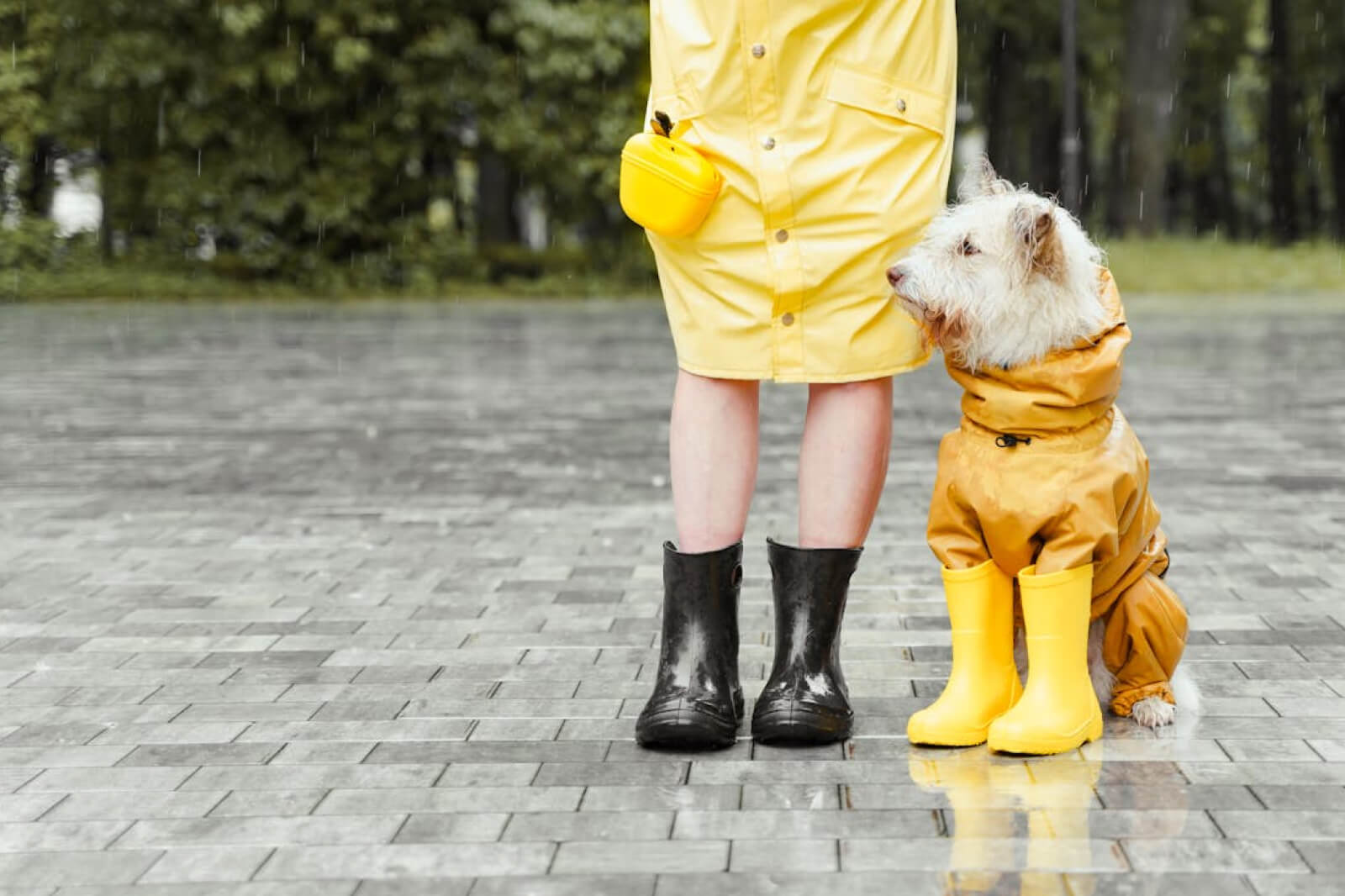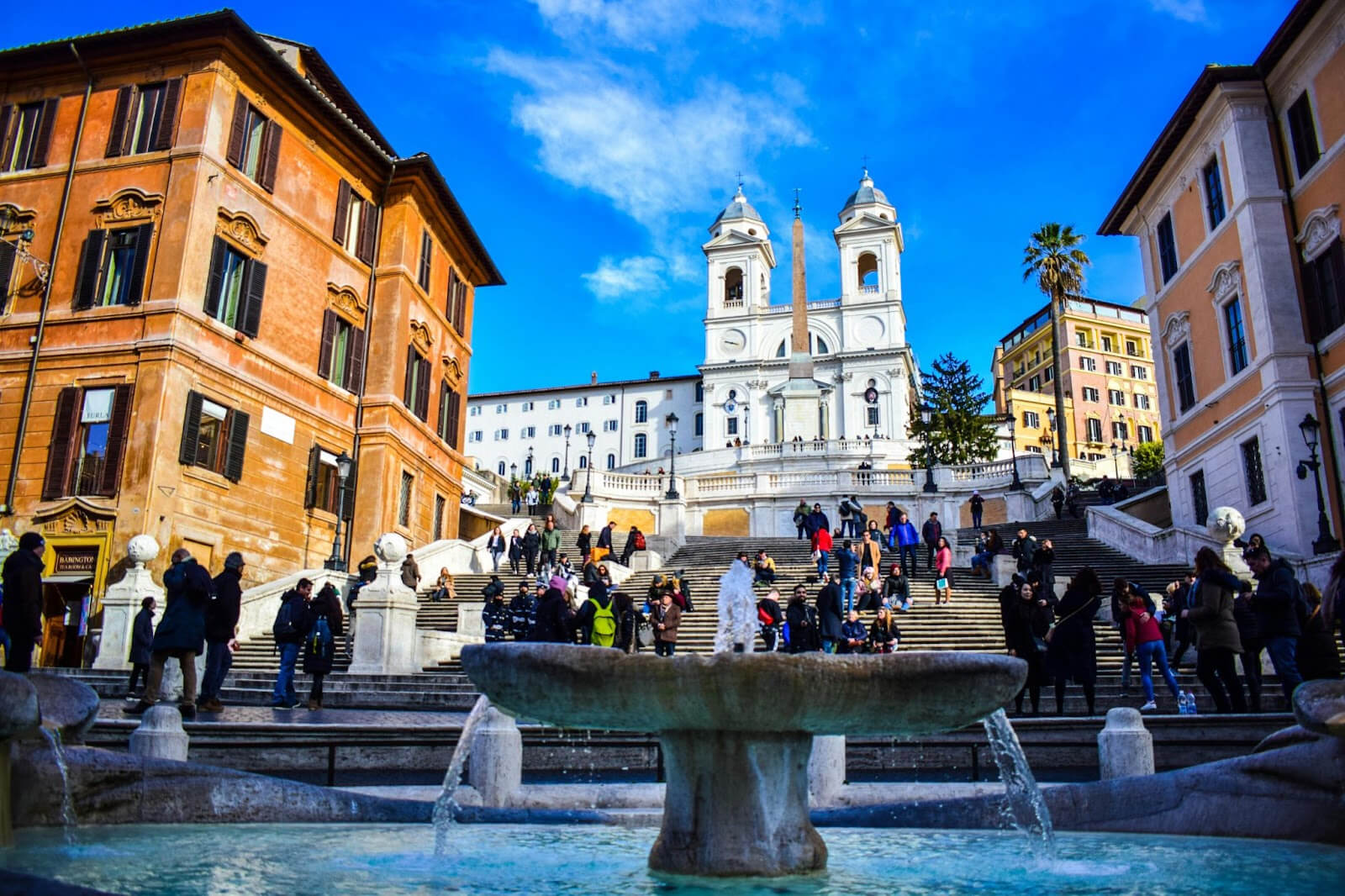
I Saw a Dead Whale’s Dick in Iceland, and It Changed My Life


At the information center in the tiny, picturesque town of Vik, Iceland, a young man was sitting behind the desk reading an old paperback copy of Galapagos by Kurt Vonnegut.
I asked him what he thought of it. “I just started,” he mumbled through a mouth half-full of sandwich. “Is there something I can help you with?”
“Yeah, I was just wondering what we should see in the area. We only have a few hours.”
My wife and I had driven two hours to Vik so that we could make our way back toward our hotel at a leisurely pace, stopping at a few of the sites of Iceland’s southern coast along the way. We had a taxing itinerary, but it seemed like a good idea to consult with a local while we were stopped to use the bathroom.
The young man tore a tourist map from a pad and walked me through the highlights of the area. He pointed me to a spot above the town’s church where we could get the best view of Vik’s handful of postcard blocks, to a nature reserve noted for beautiful ocean scenery, and to a stretch of volcanic beach known for its dangerous waves and for a towering mass of basalt pillars—where tourists go to take pictures and to be surprised by freak waves that knock them down and occasionally kill them. At this point my wife had joined us from the bathroom, and the young man pulled out his phone to show us something else at that same stretch of beach.
“If you go all the way down to the other end, there’s something else right now that is pretty amazing. A humpback whale washed up a few days ago. If he’s still there—it’s definitely a he—you might want to go see. Here’s a picture my friend sent me. So, yeah, it’s definitely male.”
He seemed to be suppressing his amusement as he showed us an image of his friend posing beside a whale corpse, gesturing toward its exposed member.
He showed us another shot, one of the whale’s eye, which had filled with fresh blood. Did we want to see a beached dead whale? It turned out the answer was “yes.” I can’t say why, because we didn’t discuss it. We both just seemed to agree that it was something we shouldn’t miss.
Driving down toward the crowded lot where tourists parked to pose with the basalt pillars, I thought I could see a big dark mass on the far end of the beach, then I lost sight of it behind a hillock, and the pillars came into view. They’re fascinating to look at. Perfectly vertical six-sided columns of stone—formed when volcanic rock cools just right. They jutted up above the black sands, and it was possible to clamber up a few levels, which a number of tourists were doing.
We stayed long enough to have our turn taking a few shots, and we marveled for a bit at the waves crashing against the steep slope of sand—high winds throwing billows of mist back from their crests. From the crowd of tourists we couldn’t see any beached whale. We weren’t sure how far the beach stretched, or if a high tide had already swept across the sand and pulled the humpback back into the ocean.
I decided to run ahead of my wife to see if it was worth the trek.
A ribbon of smooth stones provided better resistance than the sand. They clattered under my feet as I raced along the beach. Half a mile down I saw again the dark mass I’d spotted from the car, with something white projecting from its left side. But it was distant enough that it might have been anything. I unzipped my coat and walked for a stretch to catch my breath. A handful of people were milling about closer to the dark shape. I passed a photographer heading the other way and thought about asking if she’d seen the whale, but the idea of it felt strange.
Even if we were both there for the same thing, there was something shameful or sacrilege in the attraction to such a morbid spectacle or in the idea of discussing it aloud. I started running again.
Eventually, I was close enough to be sure it was the whale. The white underside of one giant fin was pointing out to sea. I ran a little further—in awe of him even from a distance—before I stopped and began walking back toward my wife, waving both arms overhead in big sweeping arcs—the signal that the whale was really there. It took us a while to spot one another. I had run farther than I’d realized. She waved her arms back at me. We walked slowly toward each other for a long time before we were together again. Tire tracks from some huge vehicle had made twin troughs in the sand. We kicked along beside them, making a game out of throwing rocks.
When we reached the whale, the other people had cleared out. We were the only ones there. He was something in excess of thirty feet long. Enormous, but probably not full-grown. My wife was expecting something bigger—closer to the blue whale model that hangs from the ceiling in the Museum of Natural History. She wondered if he was an infant. I guessed he was probably a teenager.
He was lying on his side in the sand, his belly beginning to bloat with rot, spreading his accordion ribs and giving him almost the appearance of pregnancy. His only visible eye—so small in comparison to his bulk—had grown dark and hazy since the young man’s friend had snapped that picture. There was no sense that a sentient creature had ever lived behind that blur. On his chin, barnacles had opened to reveal the tiny tentacles of the soft creatures inside. Deep divots, like acne scars, showed where the whale had managed to knock other barnacles loose. His fin was longer than a person is tall. His mouth hung open, and pebbles were caught in the push broom of his baleen fibers. Where his body provided shelter from the wind, the smell of death was heavy and nauseating.
The entire experience hit me harder than I was expecting.
I had a more intense feeling of mortality than I’ve felt at any funeral. There was no mortician’s makeup or flowers or a fancy box to dress up the horror as anything formal or somber. Life had abandoned this awesome, powerful creature. Had he already been sick—or dead—when he washed up, or did the beach itself kill him—drying him out and crushing his organs under his own tremendous weight?
A few days ago this dead lump had been so much more—and so much more alive—than I will ever be. He had shared his song with other whales over thousands of miles. He had swelled his mouth with enough water to fill a swimming pool, spitting out what he didn’t want to eat. He had launched himself into the air and slammed back through the waves with the force of a train crash. Now he was only an object—a mass of blubber decomposing on the beach.
And there was his dick on the windward side, just as it had looked beside the young man’s friend in that picture—fully exposed and hanging from the whale’s lower belly almost to the sand.
It was as thick as a man’s thigh, and maybe at least four feet long. Waxen white at its base, it tapered toward a bloodred point like someone had been using it to paint a fading sunset. As I watched it, the wind sent it gently swinging. There was something so grotesque and comical about the sight of it. And at the same time soothing. It was the only part of the whale that moved. A metronome for the world. Keeping the rhythm of a slow return to nature—a peace and a purpose after death.
On the walk back to the car, we passed several dead fish and birds in various states of decay along the beach. I wondered how long it would take for the whale to be stripped down to his skeleton—how many fish and birds would he feed along the way. I found myself hoping that, when I die, I won’t be made up or put in a fancy box. Nature is waiting to take my body back. I don’t want to disappoint her.
